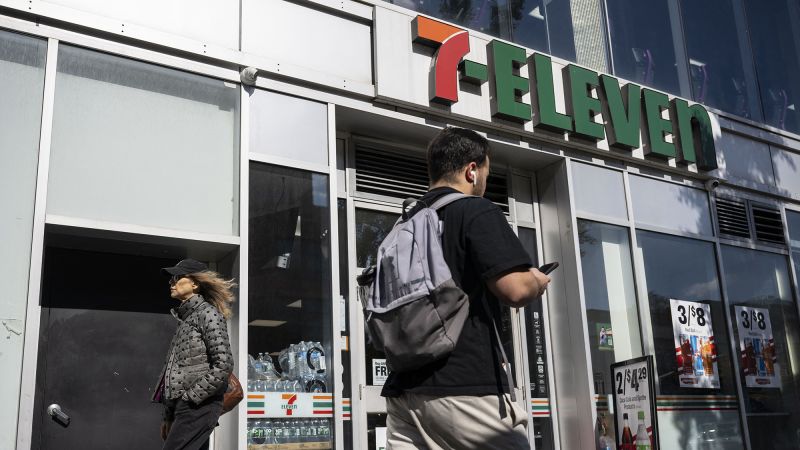Overall, 7-Eleven has announced the closure of 444 underperforming locations across North America due to various issues like slowing sales, declining traffic, inflationary pressures, and a decrease in cigarette purchases. The parent company, Seven & I Holdings, noted in an earnings report that the North American economy is robust overall, but middle and low-income earners are exhibiting a more prudent approach to consumption due to factors like inflation, high interest rates, and a deteriorating employment environment. This has led to a 7.3% decline in traffic in August and a 26% decrease in cigarette purchases since 2019.
The closures are seen as a strategic move aimed at keeping the chain efficient and profitable by pruning locations that have suffered from a disproportionate decline in foot traffic. Analyst Neil Saunders believes that increased competition from online and value stores, as well as consumer struggles with rising food prices, may have also contributed to the closures. While 7-Eleven plans to invest in its food offerings, which are now the highest sales category and a top draw for customers, competitors like Wawa and Sheetz are currently earning higher customer satisfaction scores for their overall offerings.
In response to the closures, 7-Eleven stated that it continuously reviews and optimizes its portfolio as part of its growth strategy. The company emphasized that it will continue to open stores in areas where customers are seeking more convenience. Additionally, these closures come at a time when Circle-K owner Couche-Tard has made a takeover bid of $47.2 billion for 7-Eleven, after increasing their initial offer by $8 billion. The company remains optimistic about its future despite the closures, and it is focusing on enhancing its food offerings and overall customer experience to remain competitive in the convenience store market.
The decline in traffic and sales of cigarettes has prompted Seven & I Holdings to make the decision to close the underperforming locations, with a specific list of closing stores not immediately released. The closures represent 3% of 7-Eleven’s portfolio, which has over 13,000 stores across the United States, Canada, and Mexico. The chain has observed changing consumer behavior and economic factors affecting purchasing patterns, leading to a shift away from traditional sales categories like cigarettes.
Overall, the closures are part of 7-Eleven’s strategy to optimize its store portfolio, focusing on efficiency and profitability. While the chain continues to face challenges in the market, it remains committed to providing convenience to its customers and investing in areas that drive sales and customer satisfaction. The competitive landscape in the convenience store industry is evolving, and 7-Eleven is taking steps to adapt and remain a key player in the market by enhancing its offerings and customer experience.


